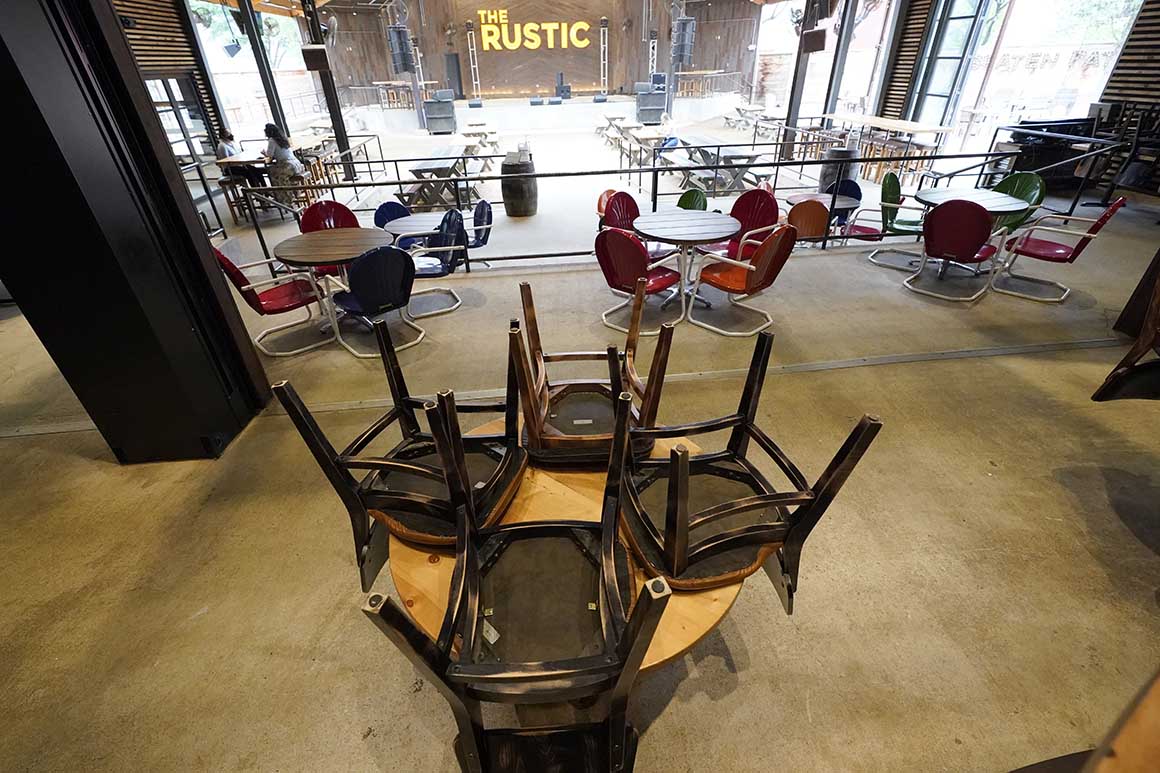
A pair of GOP governors on Friday moved to impose new mitigation measures in their states amid record numbers of new coronavirus infections, with both Texas Gov. Greg Abbott and Florida Gov. Ron DeSantis ordering bars closed and Texas placing new restrictions on other businesses the governor said were linked to the virus’s resurgence.
Texas and Florida are among around a dozen other states that have hit the brakes on reopening their economies amid a resurgence of the virus across the South and West affecting more than half of the states in the country. They’re the first that have had to reinstate restrictions as case soar.
That both governors — who are close allies of President Donald Trump and were criticized for resisting calls to lock down their states in the pandemic’s early days — have not only pressed pause on reopening but reimposed some restrictions, speaks to the severity of the outbreaks in two of the most populous states in the country.
The country as a whole on Thursday registered another single-day record of more than 39,000 new infections. Hospitalizations are also on the rise, prompting fears that the nationwide death toll could soon follow. The new spikes come as the White House has attempted to play down the increase, explaining it away by pointing to more robust testing capacity and pressing forward with reopening the economy after coming to a standstill for months this spring.
Signs are emerging, however, that the White House has begun to take the threat more seriously, with its coronavirus task force holding its first public briefing since April 27. And hours before he was set to leave for his resort in New Jersey for the weekend, the president abruptly canceled his trip with no explanation. Trump later tweeted that he wanted to stay in Washington to monitor protesters in the city looking to topple its statues.
Later in the day, the Department of Health and Human Services relented to requests from Abbott and the state’s two GOP senators and reversed a plan to cut off federal funding for a handful of coronavirus testing sites in the state at the end of the month.
In Friday’s briefing Vice President Mike Pence said it was “almost inarguable that more testing is generating more cases,” even as he announced plans to travel to three states with the most serious outbreaks. "To one extent or another, the volume of new cases coming in is a reflection of a great success in expanding testing across the country,” Pence argued.
But as the vice president hammered the message that the country — and indirectly, the White House — had made “remarkable progress” in combating the pandemic, other members of the task force acknowledged a more alarming picture.
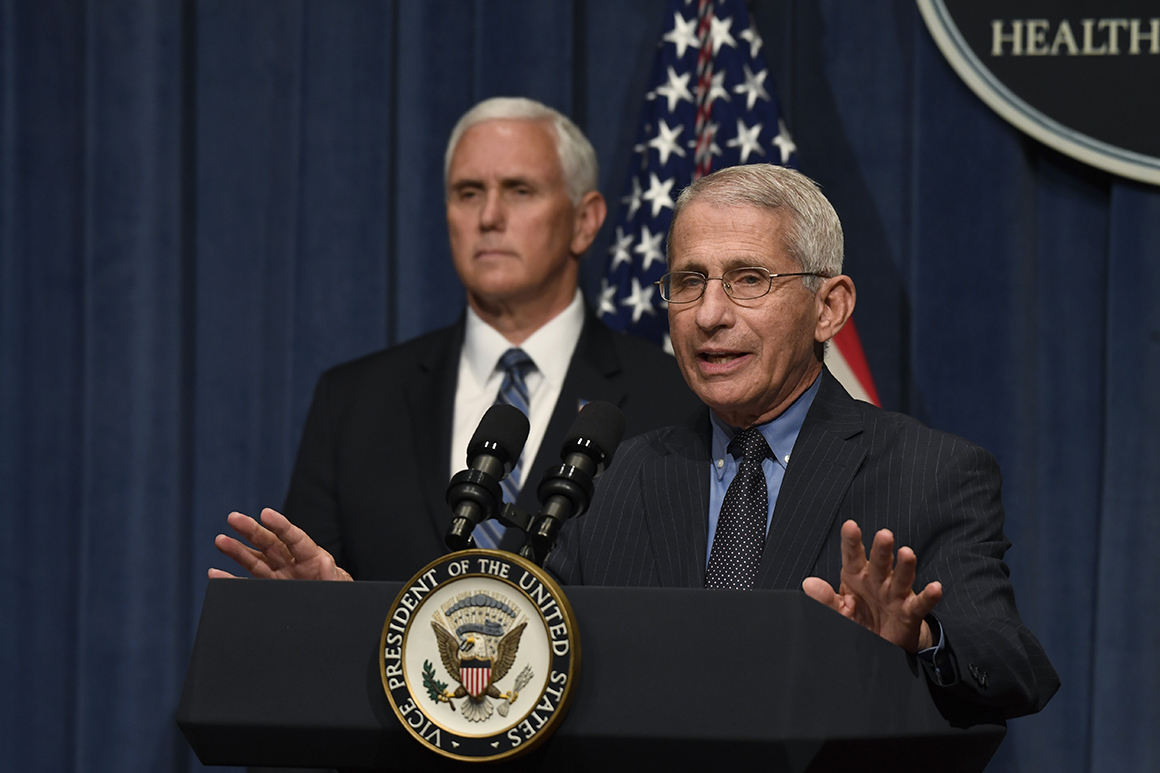
Health officials in the briefing went on to detail how several states’ case growth is outpacing the number of tests conducted, and the percentage of positive tests has also risen.
“We are facing a serious problem in certain areas,” said Anthony Fauci, the nation’s top infectious diseases expert. Fauci also implicitly countered Pence and other administration officials, who cast the outbreaks across the South and West as isolated "hot spots."
“We have a very heterogenous country, but heterogeneity doesn’t mean that we are not intimately interconnected with each other,” Fauci said. “So what goes on in one area of the country, ultimately could have an effect on the other areas of the country.”
Amid the new spikes, Pence announced that he and Deborah Birx, the coordinator of the White House coronavirus response, would be traveling to Texas on Sunday, and Arizona and Florida next week “to get a ground report.” Pence had already been scheduled to travel to each state for political events.
The announcement came 24 hours after Abbott first ordered a pause on the state’s reopening process, which began in May. The Texas governor on Thursday also halted elective surgeries in a handful of counties and backed down from an earlier directive that banned cities and counties from mandating residents wear face masks in public.
DeSantis, meanwhile, had indicated that he had no plans to move Florida into its next phase of reopening, while local hot spots weighed their own shutdowns and mask requirements. But the state added nearly 9,000 new cases Thursday, shattering its previous one-day record set only days earlier.
“Effective immediately, the Department of Business and Professional Regulation is suspending on premises consumption of alcohol at bars statewide,” Secretary Halsey Beshears tweeted minutes after the new numbers posted. Establishments can still sell drinks to go.
With their orders Friday, Abbott and DeSantis joined nearly a dozen other states that over the last week or so have begun to scale back reopening due to the new surge. On Thursday Gov. Doug Ducey of Arizona, which is among those seeing the highest increase in new infections, announced that the state’s reopening process would also be halted.
California may soon follow suit, with Gov. Gavin Newsom warning this week that the state is “prepared” to issue another stay-at-home order if necessary, though adding that “We don’t intend to do that. We don’t want to do that.”
On Friday Newsom provided a glimpse at how he might approach the California’s outbreak, announcing that his administration had advised Imperial County, on the state’s southern border with Mexico, "to pull back and once again reinstitute their stay-at-home orders." While he emphasized the county would be in control of the process the governor wouldn’t rule out intervening.
San Francisco Mayor London Breed, meanwhile, announced that she was delaying the city’s next phase of reopening after infections continued to rise.
Arkansas Gov. Asa Hutchinson on Thursday followed his neighbor Abbott, announcing that he would not be lifting any further coronavirus-related restrictions the same day his state posted one of its largest single-day increases in new cases. Texas’ other neighbor to the east, Louisiana, had already announced a four-week delay before moving into its next phase of reopening.
The governors of Utah, Michigan, Kansas, Idaho, Nevada, North Carolina and Delaware have also taken similar steps to freeze the current phase of reopening.
The last week has seen a significant shift in tone from the leaders of states being battered by the latest outbreaks, from ditching rhetoric pinning the blame for new upticks on increased testing to authorizing cities and localities to impose face mask requirements that they previously opposed.
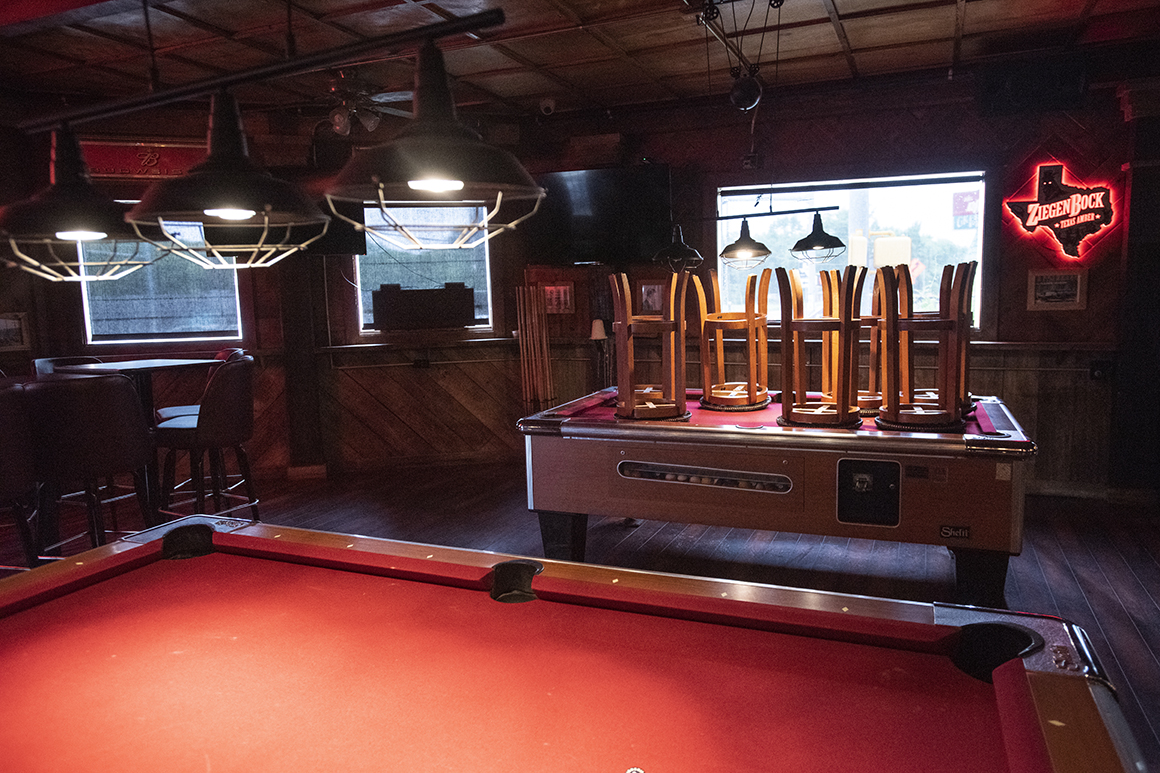
Officials all over the country have also begun to implore young people, who are making up an increasingly large share of the newest infections, to heed social distancing recommendations, practice good hygiene and wear face masks while out and about.
But for the most part, and until Friday, they’ve roundly dismissed the possibility of ordering another wave of statewide lockdowns or shuttering businesses, stressing the importance of personal responsibility and the desire to avoid economic collapse. Governors have also continued to resist calls for statewide mask requirements, even as they empowered local leaders to impose them.
Hutchinson said Friday he would not be rolling back the reopening process like Texas is, asserting that data in his state didn’t call for it.
“We analyzed you know, whether it is our restaurants, our bars, our barber shops, or any of these that we’ve lifted some restrictions on, contributed to the increase in cases, and we didn’t see a correlation,” he told MSNBC. “So we’re not going to be punishing those businesses that are trying to do the right thing.”
In Texas, Lt. Gov. Dan Patrick shut down the prospect of another shelter-in-place order, even as Abbott had urged residents to stay home if they can.
“Going back to a lockdown, that would have to be something catastrophic and we don’t see that in the future,” he told Fox News in an interview Friday.
Abbott said in a statement his decision came after the state exceeded a 10 percent positivity rate for coronavirus tests. The state reported nearly 6,000 new confirmed cases of coronavirus on Thursday, a new daily record.
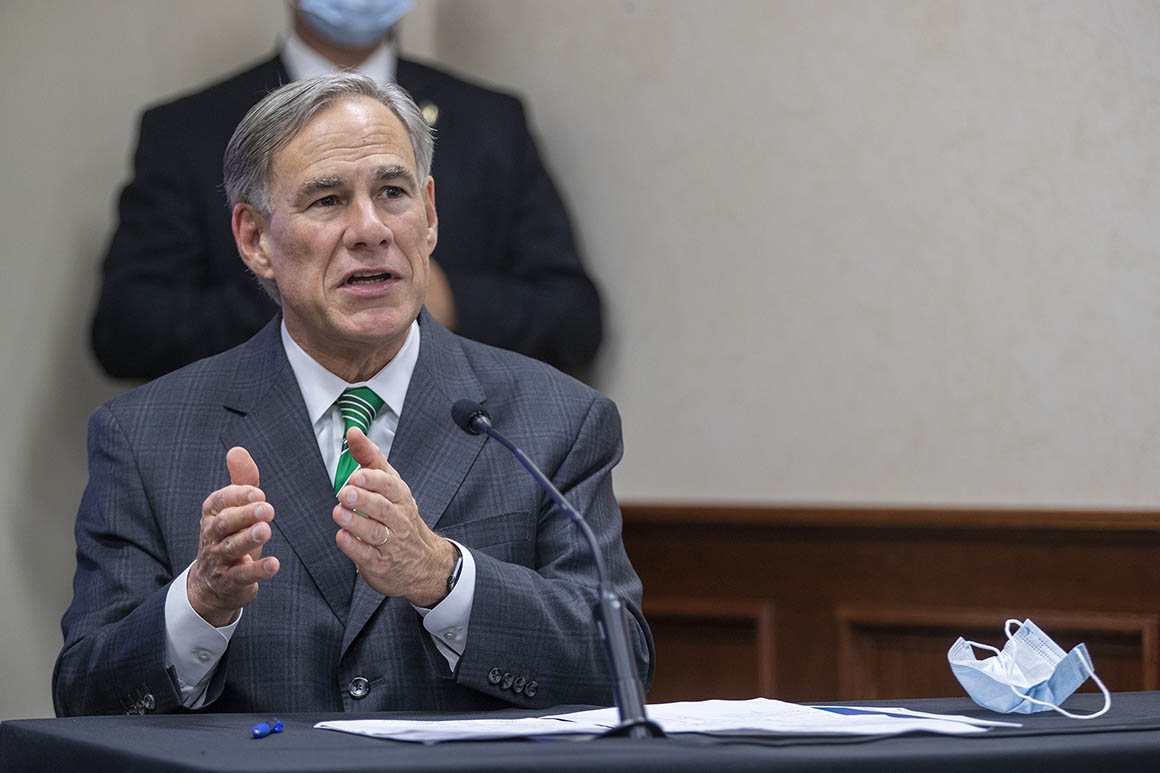
But the governor noted that his order was meant to narrowly target businesses linked to the new outbreaks.
“At this time, it is clear that the rise in cases is largely driven by certain types of activities, including Texans congregating in bars,” he said, adding that he hoped the new restrictions would be as “limited in duration as possible.”
According to Abbott’s orders, bars must have closed by Friday at noon local time — though they will be allowed to conduct curbside service — and restaurants will be restricted to 50 percent capacity for dine-in service beginning Monday. The order also mandates the closure of rafting and tubing businesses and requires that outdoor gatherings of more than 100 be approved by local governments.
The new shift in approach from governors in affected states comes as local leaders have raised alarms about the worsening outbreak.
In Harris County, the most populous county in Texas and home to Houston and some of its suburbs, County Judge Lina Hidalgo raised the county to the highest Covid-19 threat level, asking residents to stay home.
“Our situation is far worse today than when we issued our first stay-home order in Harris County and when the state issued their first stay-home order," she said in a news conference Friday, according to the Houston Chronicle.
Hidalgo had ripped the governor’s handling of the outbreak in an interview with POLITICO earlier this week, criticizing the lack of urgency.
“It’s not an outlier or it’s not a blip. It’s something that is headed towards a crisis unless we do something proactively to stop this,” she said Wednesday, arguing that “just flattening the curve may not be enough” to keep hospitals from becoming overwhelmed. “We are already in a high plateau.”
Patrick pushed back on claims that the state is dangerously close to reaching its hospital capacity, asserting there was “misinformation” emanating “even … from hospitals and hospital directors.”
“It’s confused some people. And leadership is about being calm, not panicking, and making the right decisions to protect the life and safety and the health of the population, and also keep our economy afloat and business open the best we can do," he said.
Before Abbott’s announcement, Austin Mayor Steve Adler pushed for stronger action from the governor.
“The path we’re on right now is the path that right now has us in danger,” he said in an interview on CNN. “We need to do something that’s different than that. We need our people in our community here to act differently. The status quo will not protect us.”
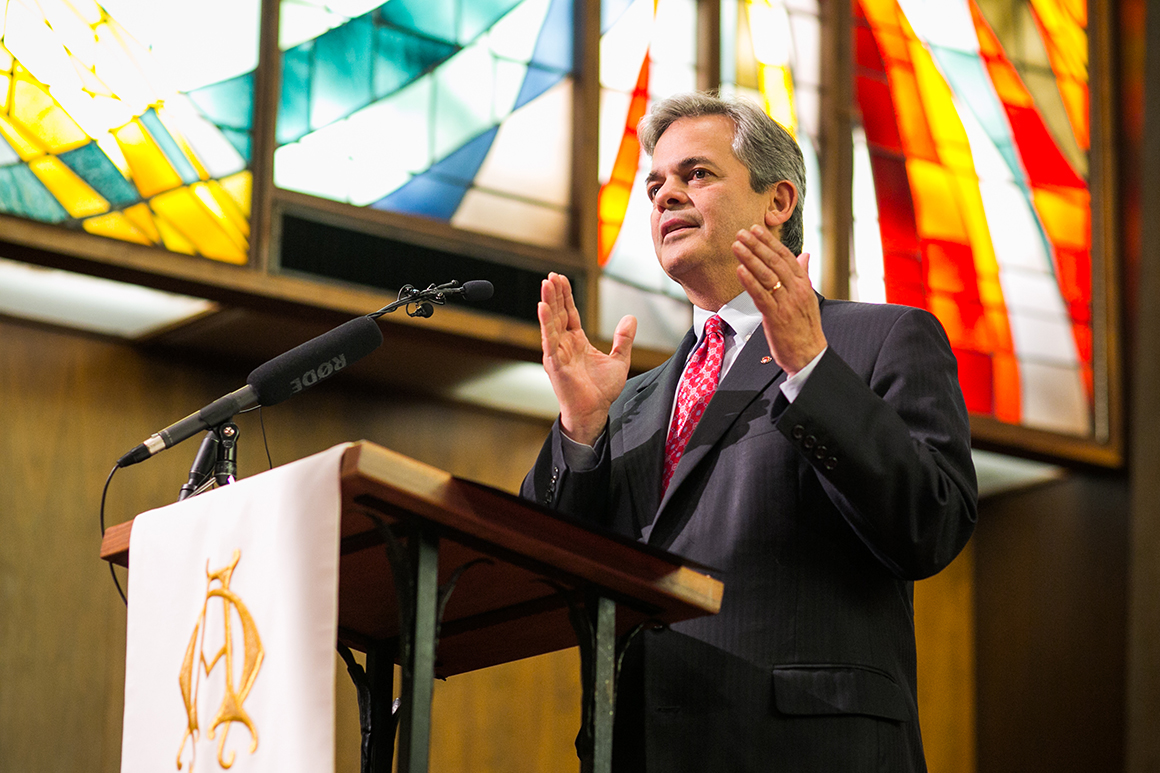
In Arizona, Tucson Mayor Regina Romero also blasted Ducey’s plan to merely pause the state’s reopening, accusing him of moving to reopen the state “way too early” to begin with.
“He says that he wants to take a pause, I don’t know what he wants to pause on. He really went from lifting the stay-at-home and really lifting it and it went from zero to 60 in no time so unless he wants to start pushing back what the restrictions that he lifted, I don’t see what else he needs to pause,” the mayor told CNN.
The vice president rejected that line of thinking in Friday’s task force briefing.
“I think there will be a temptation for people to look at the Sun Belt states that have been reopening and putting people back to work, and suggest that the reopening has to do with what we are seeing in the last week or so,” he acknowledged. But Pence pointed out that many of the states seeing the worst outbreaks began reopening almost two months ago, and again attributed the spike to a feeling of invincibility among younger Americans.
Still, he did not announce any new initiatives, resources or strategies in response to the new outbreaks — and wouldn’t explicitly recommend people wear masks, unlike other members of the task force.
Pence was pressed on the issue by reporters who noted his reluctance to recommend what many officials have called one of the simplest ways to arrest the spread of the virus and a key to a safe reopening, and that wearing a face covering has become a political statement.
The vice president responded that Americans should “listen to their state and local authorities” but brushed off criticism that he and the president, by resuming crowded campaign events with little or no social distancing and masks, were setting a poor example for the rest of the country.
“I think it’s really important that we recognize how important freedom and personal responsibility are to this entire equation,” Pence said, noting that attendees at packed Trump campaign events in Arizona and Oklahoma have chosen to be there. “But allowing younger Americans to understand, particularly in the counties that are most impacted, the unique challenges that we are facing … is important.”
Quint Forgey and Renuka Rayasam contributed to this report.
Source: politico.com
See more here: news365.stream






